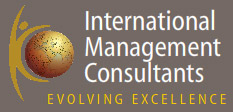


Poonam Datta | Founder & CEO
Post graduate in Marketing & Business Management, and with over 25 years of diversified experience with renowned multinationals. IMC is a vision that evolved from her knowledge of how individuals play a key role in business successes.
See Portfolio
What is Stress?
Stress is the “wear and tear" our bodies experience as we adjust to our
continually changing environment; it has physical and emotional effects on us
and can create positive or negative feelings. As a positive influence, stress
can help compel us to action; it can result in a new awareness and an exciting
new perspective. As a negative influence, it can result in feelings of distrust,
rejection, anger, and depression, which in turn can lead to health problems such
as headaches, upset stomach, rashes, insomnia, ulcers, high blood pressure,
heart disease, and stroke. With the death of a loved one, the birth of a child,
a job promotion, or a new relationship, we experience stress as we re-adjust our
lives. In so adjusting to different circumstances, stress will help or hinder us
depending on how we react to it. How Can I Eliminate Stress from My Life? As we
have seen, positive stress adds anticipation and excitement to life, and we all
thrive under a certain amount of stress. Deadlines, competitions,
confrontations, and even our frustrations and sorrows add depth and enrichment
to our lives. Our goal is not to eliminate stress but to learn how to manage it
and how to use it to help us.
Insufficient stress acts as a depressant and may leave us feeling bored or
dejected; on the other hand, excessive stress may leave us feeling “tied up in
knots." What we need to do is find the optimal level of stress, which will
individually motivate but not overwhelm each of us. How Can I Tell What is
Optimal Stress for Me? There is no single level of stress that is optimal for
all people. We are all individual creatures with unique requirements. As such,
what is distressing to one may be a joy to another. And even when we agree that
a particular event is distressing, we are likely to differ in our physiological
and psychological responses to it. The person who loves to arbitrate disputes
and moves from job site to job site would be stressed in a job, which was stable
and routine, whereas the person who thrives under stable conditions would very
likely be stressed on a job where duties were highly varied. Also, our personal
stress requirements and the amount which we can tolerate before we become
distressed changes with our ages. It has been found that most illness is related
to unrelieved stress. If you are experiencing stress symptoms, you have gone
beyond your optimal stress level; you need to reduce the stress in your life
and/or improve your ability to manage it.
How Can I Manage Stress Better? Identifying unrelieved stress and being
aware of its effect on our lives is not sufficient for reducing its harmful
effects. Just as there are many sources of stress, there are many possibilities
for its management. However, all require effort toward change: changing the
source of stress and/or changing your reaction to it. How do you proceed?
1. Become aware of your stressors and your emotional and Notice your distress.
Don't ignore it. Don't gloss over•physical reactions. Determine what events
distress you. What are you telling•your problems. Determine how your body
responds to•yourself about meaning of these events? the stress. Do you become
nervous or physically upset? If so, in what specific Can you change your
stressors by•ways?
2. Recognize what you can change. Can you reduce their intensity•avoiding or
eliminating them completely? Can•(manage them over a period of time instead of
on a daily or weekly basis)? you shorten your exposure to stress (take a break,
leave the physical premises)? Can you devote the time and energy necessary to
making a change (goal setting,• time management techniques, and delayed
gratification strategies may be helpful The•here)?
3. Reduce the intensity of your emotional reactions to stress. stress reaction
is triggered by your perception of danger...physical danger and/or emotional
danger. Are you viewing your stressors in exaggerated terms Are you•and/or
taking a difficult situation and making it a disaster? Are you overreacting and
viewing things as•expecting to please everyone? Do you feel you must always
prevail in every•absolutely critical and urgent? Work at adopting more moderate
views; try to see the stress as•situation? Try to•something you can cope with
rather than something that overpowers you. temper your excess emotions. Put the
situation in perspective. Do not labour on the negative aspects and the “what
if's."
4. Learn to moderate your physical Slow, deep breathing will bring your heart
rate and•reactions to stress. Relaxation techniques can reduce muscle
tension.•respiration back to normal. Electronic biofeedback can help you gain
voluntary control over such things as Medications, when prescribed•muscle
tension, heart rate, and blood pressure. by a physician, can help in the short
term in moderating your physical reactions. However, they alone are not the
answer. Learning to moderate these reactions on your own is a preferable
long-term solution.
5. Build your physical Exercise for cardiovascular fitness three to four times a
week•reserves. (Moderate, prolonged rhythmic exercise is best, such as walking,
swimming, Maintain your• Eat well-balanced, nutritious meals. •cycling, or
jogging). Mix• Avoid nicotine, excessive caffeine, and other stimulants. •ideal
weight. Get enough sleep. Be•leisure with work. Take breaks and get away when
you can. as consistent with your sleep schedule as possible.
6. Maintain your emotional • Develop some mutually supportive friendships/
relationships. •Reserves. Pursue realistic goals, which are meaningful to you,
rather than goals others Expect some frustrations, failures, and•have for you
that you do not share. Always be kind and gentle with yourself--be a friend to
yourself•sorrows.
STRESSFUL LIFE EVENTS TEST
The following Life Events Stress Test (based on work of Holmes & Rahe, 1976)
shows the kind of Life Pressure that you are facing. Depending on your coping
skills or lack thereof, it can indicate the likelihood that you will fall victim
of a stress related illness. This could be mild such as frequent tension
headaches, acid indigestion or loss of sleep. Or it could be serious with
problems such as ulcers, migraines and increased blood pressure. Look through
the following list of Life Events. If you have experienced any of the events
listed during the past 12 months tick the appropriate item. You can total your
Stress Score at the end. Please remember this is not a substitute for a personal
professional consultation with your doctor.
If you are worried about your health please consult your doctor!
Stress Value
— Death of Spouse 100
— Extra Marital Relations of Spouse 90
— Marital Separation/Divorce 73
— Suspension or Dismissal from Job 68
— Lack of Child 65
— Death of Close Family Member 63
— Marital Conflict 59
— Property or Crops Damaged 53
— Death of a Friend 50
— Robbery or Theft 48
— Excessive Alcohol or Drug Use by Family Member 45
— — Conflict with In-laws 42
— Broken Engagement or Love Affair 40
— Major Personal Injury or Illness 40
— Son or Daughter Leaving Home 39
— Financial Loss or Problems 39
— Illness of Family Member 39
— Trouble at Work with Colleagues, Superiors or Subordinates 38
— Prophecy of Astrologer or Palmist etc. 38
— Pregnancy (Wanted/Unwanted) 36
— Conflict over Dowry 34
— Sexual Problems 32
— Self or Family Member Unemployed 30
— Lack of Son 29
— Large Loan 29
— Marriage of Daughter or Dependent Sister 28
— Minor Violation of the Law 27 — Family Conflict 27
— Break-up with a Friend 26
— Major Purchase or Construction of House 25
— Death of a Pet 24 — Failure in Examinations 23
— Appearing for an Examination or Interview 22
— Getting Married or Engaged 22
— Trouble with Neighbor 21
— Unfulfilled Commitments 21
— Change in Residence 20
— Change or Expansion of Business 20
— Outstanding Personal Achievement 19
— Begin or End Schooling 19
— Retirement 18
— Change in Work Conditions or Transfer 17
— Change in Sleeping Habits 16
— Birth of a Daughter 16
— Gain of New Family Member 15
— Reduction in Number of Family Functions 14
— Change in Social Activities 14
— Change in Eating Habits 13
— Spouse Begins or Stops Work 12
— Going on a Pleasure Trip or Pilgrimage 11
TOTAL Understanding Your Score 0-149 You are doing very well. You have a low
susceptibility to stress-related illness. 150-299 You score suggests that you
are more susceptible to stress-related problems. You do need to take action to
protect yourself. We suggest you consider the Personal Stress Management Plan.
300 and Over You score suggests that you are highly susceptible to
stress-related problems. Please obtain help. Consult your doctor and consider
the Personal Stress Management Plan.